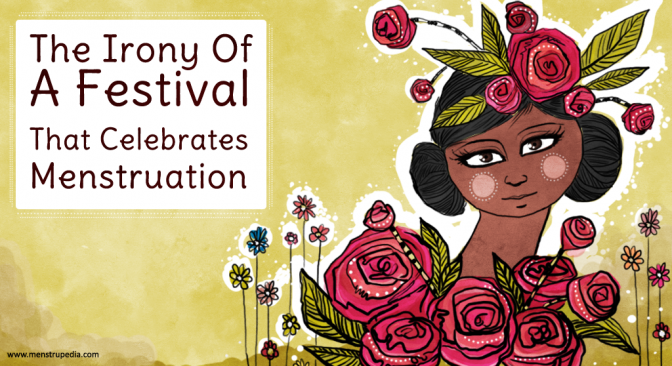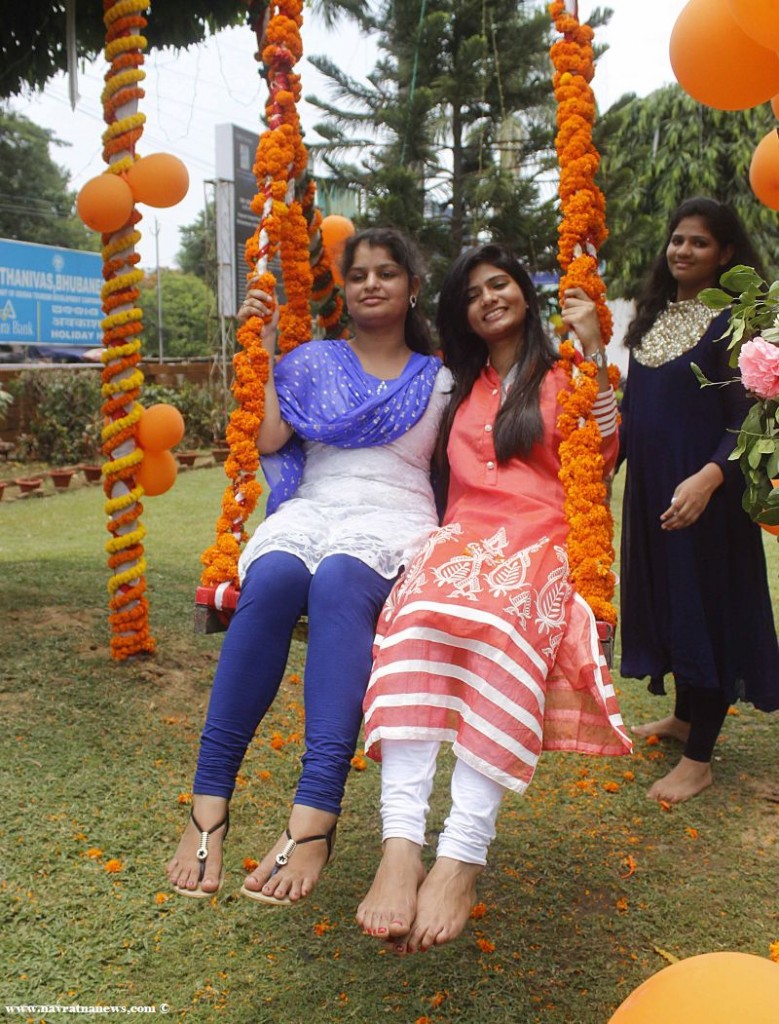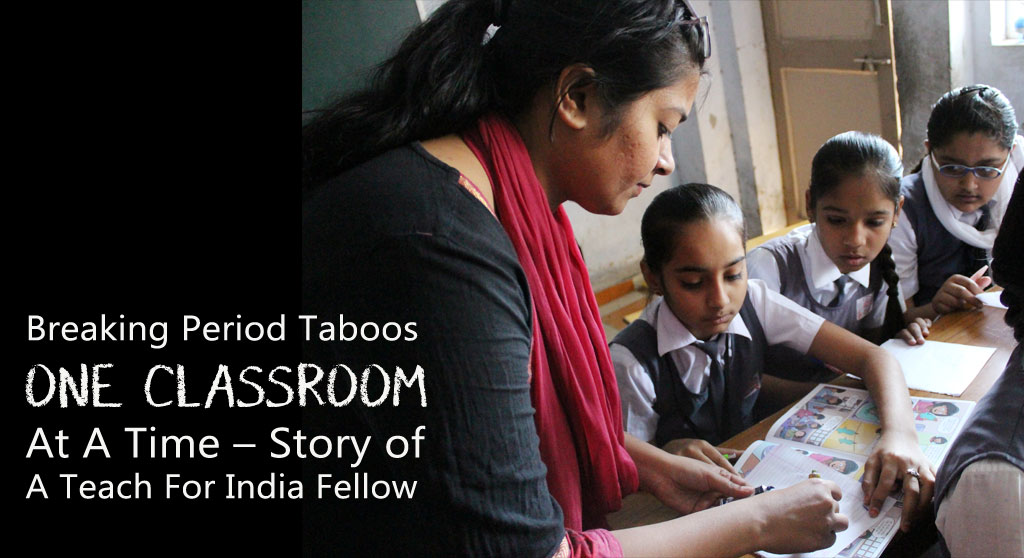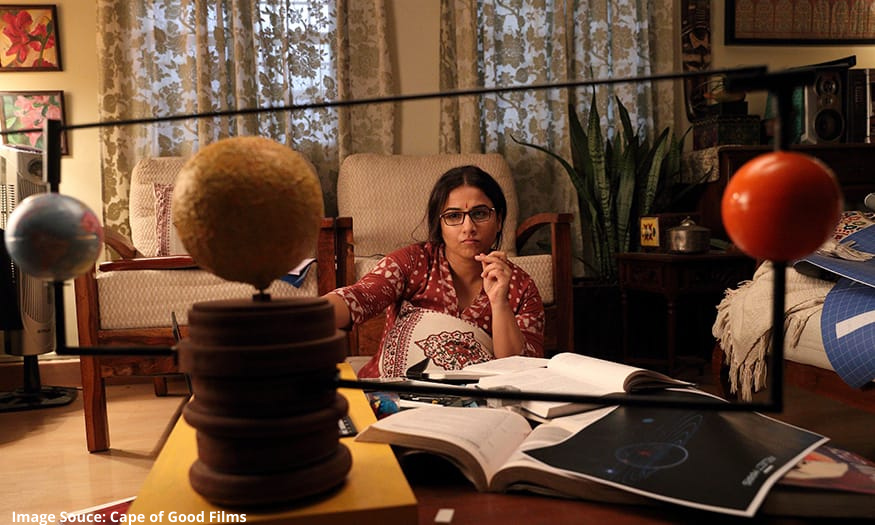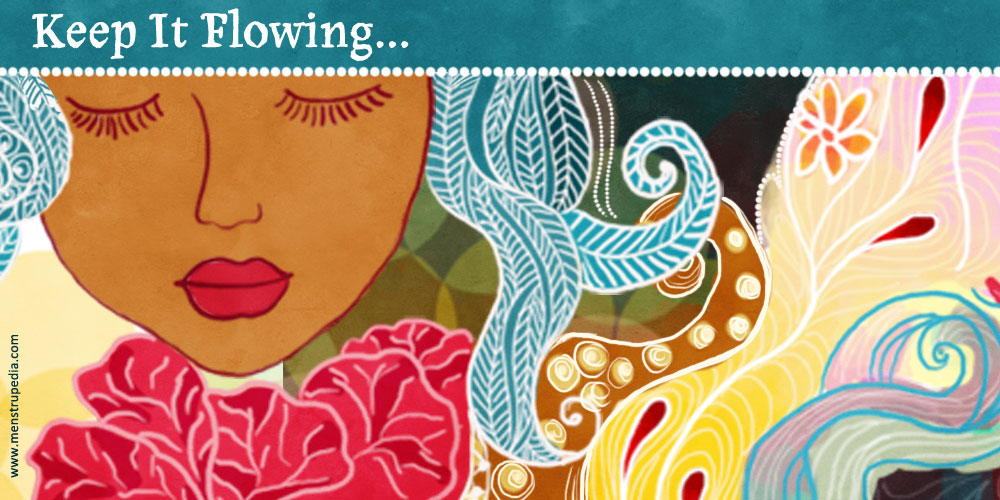I belong to a rather poor state and the State government often demands funds from the Center to alleviate this dire issue of poverty. When I say poor, there is a lot that can be added to this definition of poverty. A state which is infamous for witchcraft and the violence on women leading to murders has a long way to go before it sees a change in the mindsets of people. This state is still witnessing pregnant mothers migrating from native villages to work in the brick kilns of neighboring states, giving birth to babies inside dingy settlements in Andhra Pradesh and Tamil Nadu. This state is still struggling with an open defecation problem which is a rampant habit among men and women, but the irony is that women can only go to defecate either before sunrise or after sunset to ward off and avoid onlookers.
Amidst many such issues which put women in the back seat, there is yet another concern which is still a taboo and not much effort has been made in that direction and not many social media campaigns have been initiated to make people understand that women’s menstrual cycles are commonplace occurrence just like any other act of daily life. Being a man, I may not be able to justify the issue to others to a life-changing extent but,yes I can definitely set an example by talking about it in the open.

If I look back on my graduation days, I can still remember that menstruation was a funny topic used to crack dirty jokes against those girls who were both our batch-mates and friends. I came to learn more about it only when I first had a girlfriend and there was this guilty feeling I underwent when I came to know about the pain and suffering she went through every month. Now however, I have been seeing a lot of awareness about this on the internet and in other forms of social media but the state is yet to become fully aware of this problem. Hence, it is now time to educate statesmen about some very important facts of life which they may or may not be aware of.
While I was listening to Mr. Anshu Gupta, the Magasaysay awardee, speak on this issue, he mentioned the poor and unhygienic sanitary practices of women and girls in many rural parts of the state. I could relate quiet well to it since I have seen that in most of the villages, shopkeepers do not even store sanitary pads and this is an indicator of the seriousness of the issue. However, in urban settings and cities even, menstruation is ridden with myths and many don’t like to talk about it In public; shopkeepers in fact use a piece of newspaper to wrap them up in.
Funnily enough, the same state celebrates a four-day long festival across the region and most importantly in rural areas, in celebration of womanhood. This festival is primarily meant for young girls and symbolizes those cultural practices which applaud the fertility of mother earth. Symbolically, the young girls celebrates the festival as a matter of joy and enjoy these four days with great enthusiasm. During the first three days of the festival and on the last day,it is traditionally a time to get cleaned up which is symbolically done by women washing their grinding stones with turmeric paste and adorning it with flowers and sindoor.
During the festival, girls wear new clothes everyday and they do not do any other work apart from sitting, relaxing, roaming around and playing on tree swings since they are banned to walk about barefoot. They apply make – up and walk around in groups, visit friends and eat locally made cakes. There are several other customs and traditions and flexibility that these young girls enjoy without knowing as much as the crux the festival is premised upon. Some historians and cultural enthusiasts are absolutely clueless about the origin of this festival. However, many have admitted that the seriousness of the festival lies in the fact that people do not actually know why it is being celebrated in the first place.
‘Raja Mahotsava’ or ‘Raja Paraba’ is an annual festival that is dedicated to the celebration of womanhood, fertility and more importantly, menstruation. The word ‘Raja’ comes from ‘Rajaswala’, which actually means menstruating women. It is believed that during this time, mother earth menstruates and hence she must be given respite from work. It is even believed that the rain god/s pours heavily during this time in order to lessen the pain that mother earth undergoes. Unfortunately, this festival is being celebrated among ignorant young girls and hardly any of them even know the basics about it. It is high time they did. When people and mostly young men and women are vocal enough in many Indian cities to talk about menstrual taboos and practices, there is a further requirement for everybody to talk more about it in public spaces. Fathers should make their daughters comfortable enough to discuss these issues with and this should be included in educational curriculum across the country to make both girls and boys aware of things which are natural processes and certainly not taboos.
In most parts of the state, when people annually celebrate womanhood, it is much more welcoming and important indeed to let people know the reasons and importance behind celebrating this festival. Given the many problems when it comes to gender issues in my state, it is now time for everyone to open up about the fact that just like mother earth, every single woman menstruates as well and there is absolutely nothing to hide or be ashamed of!
This piece has been written as a response to an article published on Menstrupedia blog highlighting the Raja Festival. It could be read for reference, here.
Author: Ananta Prasad
An avid blogger and development communication professional, Ananta working closely with social and developmental issues and media advocacy. Photography and documentary film-making enthusiast, he is currently working as Communication Officer at Practical Action, India.
Editor: Divya Rosaline


